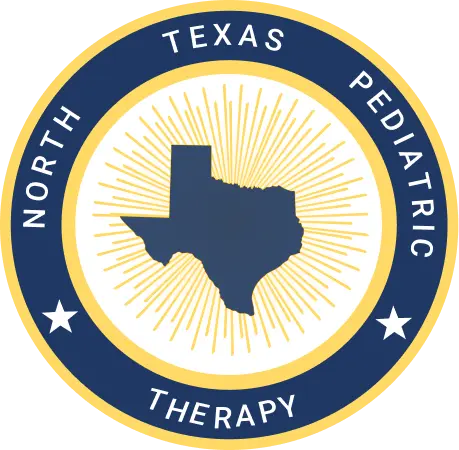Interaction is one of a child’s most critical abilities, determining the relationships between the child and the surrounding people. For many young learners, this journey comes with hurdles that may feel overwhelming when writing, speaking, or even drawing.
Suppose there is one aspect that elementary schools have risen to the occasion in. In that case, it has to create spaces where children build the communication skills they will need going forward, which has been greatly assisted by speech therapy.
These two programs are designed to ensure that children receive the support and necessary intervention early enough to enable schools to eliminate instances of children having speech problems and, in turn, assist children in developing ways to communicate their ideas and interact with others.
It is not about fixing speech impediments but ensuring every child can become competent speakers and communicators in school and life.

Why Speech Therapy Is Essential In Elementary Schools
Young children are absorbent, and although they are active learners during these years, their language development is paramount. This process is often smooth, but speech difficulties hinder you.
That’s where speech therapy elementary school programs become invaluable. These interventions pinpoint the core of communicative problems ahead of time, allowing the child to grasp relevant skills in both academic and interpersonal spheres.
Without support, children might have trouble asking for what they want and need, which can cause them to become frustrated, develop low self-esteem, and, in some cases, have difficulties making friends.
Benefits Of Early Childhood Education
You’ve probably heard the saying, “The earlier, the better,” this couldn’t be truer when it comes to early intervention for speech delays. This means that early identification of communication difficulties shut down opportunities for addressing these challenges.
Early intervention addresses the current issue and lays the foundation for the rest of the journey. For instance, a child with a speech impediment, such as stammering or poor pronunciation, might be laughed at or ignored. However, this can be effectively prevented and eliminated by early intervention. Schools have a crucial role to play here.
It may seem like simply paying for a child’s speech therapy in elementary schools only helps in the present, but it works towards making a future. The skills children develop through therapy have long-term benefits, including:
Academic Success: Clarity fosters the child’s participation, follows instructions, and contributions to the class.
Social Confidence: Well-developed speech skills help kids form friendship bonds, participate in group activities, and even form social relationships.
Career Readiness: Even if it seems like such a long way off, appeal is a valuable skill in nearly every vocation.
Besides, assistance at an early age means that schools are not only helping students now but are preparing a person for their entire lives.
What Are Classroom Speech Therapy Programs?
In the past, speech therapy involved isolating students from their peers and classmates, but this is no longer true. Many schools are now embracing classroom speech therapy programs, a model that integrates therapy into the daily school routine.
This approach has several benefits:
- Inclusivity: These therapies are conducted inside the classroom to ensure that these students practice their correct communication with others.
- Normalization: This therapy format does away with the stigma related to speech difficulty since it is being done in a group setting rather than the student feeling that it is being done individually for them.
- Collaboration: Teachers and SLPs collaborate to overlay goals for therapy with the curriculum.
These North Texas Pediatric Therapy programs encompass intonation, grammatical patterns, and pragmatic-semantic abilities. For instance, a classroom activity could involve storytelling, where students are grouped and asked to say something as detailed as possible without using a script or prop.

Speech Therapy For Young Learners
Many children have speech difficulties; each child is different and needs an individual approach. That’s why speech therapy for young learners isn’t a one-size-fits-all solution. Instead, it is very selective, depending on the patient’s needs.
Articulation Therapy: For learners with phonological difficulties, articulation therapy assists in the correct production of sound.
Language Therapy: This will involve concentration on such areas as word expansion, word arrangement in a sentence, and mastery of the content. The therapy corrects communication impediments in children, such as stuttering, by aiding in speaking smoothly and confidently.
Social Communication Therapy: This area focuses on body language, paralinguistic features, and knowledge of vocal interaction regulations.
It is not simply a language acquisition exercise but also prepares these children to speak appropriately in different contexts—whether they are asking or answering a question in class, making new friends, or working in groups.
How Schools Provide Speech Support
Schools today are more equipped than ever to offer speech support in schools, ensuring that students with speech delays receive the help they need. The process typically involves several key steps:
- Screening and Referral: Unfortunately, there are some cases where even teachers and parents notice a child has speech issues. After being flagged, students undergo tests by SLPs to identify the level of their problem.
- Individualized Plans: If a need is identified, an Individualised Education Plan (IEP) is formulated, in which a child is provided with objectives and the hows of their accomplishment.
- Regular Monitoring: Performance is constantly monitored to determine whether changes are necessary and to track the therapy’s progress.
The co-education practice involving teachers, parents, and therapists is most inspiring—a harmonious team! Together, they help foster the young child’s communication needs, whether at school or outside, by positively influencing their education.
The Final Say
At its core, speech therapy for young learners is about more than correcting speech issues; it’s about unlocking potential. It’s about giving each learner in a classroom the confidence to raise their hand, share theirs, and get along with other children.
With early intervention for speech delays, classroom speech therapy programs, and dedicated speech support in schools, North Texas Pediatric Therapy is not just addressing communication challenges—we’re empowering children to be their best selves. And that’s a foundation worth building.

